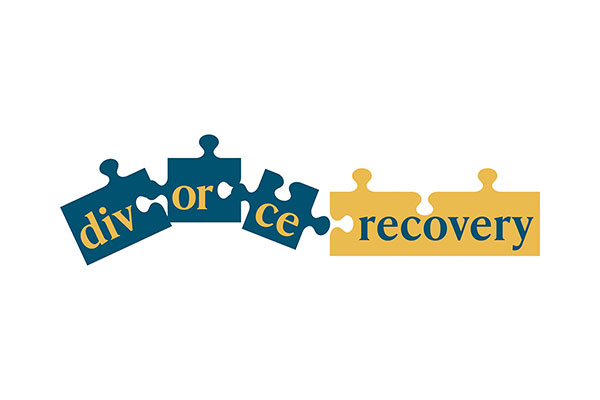Self-love is less about the ability to withstand loneliness or establish independence and more about awareness and acceptance of our incompleteness. It’s about letting others love us even when we feel unlovable because their version of us is often kinder than our own.”
“If your compassion does not include yourself, it is incomplete.”
————————————————————————————————-
“Self-Love.” Man is this phrase being thrown around a lot lately. The idea of “loving yourself” when you actually consider it is a bit confusing. What does it mean to love yourself? Do you really need to be able to do this before you can find the right partner? Can you do things to improve your love for yourself? Can you love yourself too much? All that and more will be attempted to be answered in the paragraphs to follow.
An aspect of “Self-Love” is our capacity for self-esteem. The birthplace for self-esteem comes from our earliest relationships and is compounded by the experiences and relationships built upon this foundational relationship. In other words, a template is set based on our relationship with our early caregivers and is later reinforced because we are drawn to relationships similar to it or relationships that reinforce what we came to believe about ourselves and others from that early, important relationship. Self-esteem is a slowly maturing and eventually stable property of personality. Self-esteem that is realistic reflects reasonable (neither perfectionistic nor falsely inflated) criteria for self-evaluation. It has shifted in the last decade from primarily a cohort of people dealing with a harsh inner critics to complaints of inner emptiness and confusion about core values. The literature on self-esteem has been grossly misunderstood and has led to “A’s for everyone” and participation trophy culture. This leads kids to feel more fraudulent than confident – they often understand their efforts don’t warrant recognition and it privately feels false and contrived. Shallow, “feel good” recognition are counterproductive to the development of a sense of self worth based on honest self-examination. Self-esteem that is reliable protects against being devastated by criticism or manipulated by adulation.
Nancy McWilliams, a master clinician and author, states, “It allows us to evaluate negative feedbackFeedback in group therapy refers to the constructive comments and reflections shared among group mem… without collapsing internally and positive feedback without being seduced by flattery. Healthy self-esteem comes from internalizing caregivers non-shaming attitudes toward our authentic feelings, thoughts, and behaviors. If parental standards are reasonable, we feel a sense of self approval when we measure up, and we try to improve if we fall short. Unreasonable standard, conveyed by sadistic criticism or empty praise, have pathologically depressive or Narcissitic consequences on the developing child. Neglect of all standards causes children to take their yardstick from cultural icons, which may (think superheroes, vapid celebrities, commercial advertising), lead to perverse and unachievable aspirations. Individuals with adequate self-esteem are levelheaded about their limitations and failings as well as their strengths. Because their self-imageSelf-Image refers to the way individuals perceive themselves, including their attributes, values, an… embraces states of inevitable fault and need, they can apologize when they hurt others and express gratitude when they are helped. They can make their needs explicit rather than expecting others to divine what they want and grant their wishes without their having to ask. They can say how they feel and talk in “I-statements” rather than deflecting blame. They can bear being deeply know and consequently can enjoy genuine emotional intimacy” (McWilliams, 2021). Therapy aimed at improving self esteem helps patient to understand these underlying patterns and misconceptions about themselves and others. When this can be identified and experienced emotionally big changes start to happen. Now that the groundwork of self-esteem has been laid out, lets try and tackle the idea of “self love.”
It is my belief that the term “Loving yourself” as a phrase needs to be thrown out. “Loving yourself” doesn’t lead to the healthiest approach in what you are actually trying to accomplish and mirrors the parenting errors in pop culture self-esteem building. Much like obtaining “happiness”, it’s an unrealistic ideal. Aiming your sights at taking residence in a state that is by nature transitory is a recipe for failure. Your perceived self-esteem (and thus your mood) will fluctuate to an uncomfortable degree, and frequently, if you are attempting to always be in a state of self-love. Not only that, it’s important to find time to not love yourself. Isn’t that the basis for change? Self reflection? Now, what I am not saying is to find time for self-hatred, that’s not helpful, and doing so often leads to states of depression and is never a helpful agent of change when at its extreme. I went into this a bit deeper in a previous post called “Change.”
Instead, I’d like to switch out the word “love” for “acceptanceAcceptance in CBT involves acknowledging difficult thoughts or emotions without trying to change or ….” It all works then. Self-acceptanceSelf-Acceptance is the recognition and appreciation of oneself without the need for perfection. This… is a stable place of relating to oneself. The pursuit of self-acceptance leads you to a place of authenticity and total comfort in being in your own skin. It means to be open to acknowledging all of who you are, the light and the shadow, the good and the in-progress. Self-acceptance is joining humanity and bringing a willingness to experience our shared humanity. Self-acceptance is opening yourself up to everything that you already are, it is self-acknowledgement. Self-acceptance is a state of self-allowance. It says, “I understand and appreciate who I am in this moment today, while allowing myself to continue to improve.” It sheds the painful, conditional implications tied in with the idea of self-love. The inner dialogueInner Dialogue refers to the ongoing internal conversation individuals have with themselves, encompa… of self-love might sound like, “I will only appreciate myself when X, Y, and Z criteria have been met” or more malignantly “I will deny anything that makes me not like myself and blindly live in self-aggrandizement.” The latter is a potential pitfall of too much “self-love.” I would even go so far to say that self-acceptance is the basis of making any healthy positive change in your life. It understands the gentleness that is needed to make change. Self-acceptance allows us to be at peace with where we are and who we are today while simultaneously pushing us to pursue growth. Balancing acceptance and change is the key to making progress in any psychological direction. So, first things first, trade out “self-love” for “self-acceptance.”
Onto the next question, is there anything we can do to find a deeper place of self-acceptance? Can we actually work on this? The answer to this is a simple, yes. However, it has much more to do with doing less than doing more. Surrender is at play here. In order to find ways to be more at peace with oneself we have to reach deeper states of permission. We have to work on letting go of our inner critics by befriending them. When an old, patterned, harsh and critical thought of yourself comes to mind – notice it, say hello, allow it to be there, and turn your attention back to the present moment. It isn’t “pushing it away”, its “allowing it to be.” You can be there, your attention and awareness, and so can the thought. In fact, be kind to it, it’s likely the voice of some difficult experience from earlier in life, traumaTrauma refers to the emotional and psychological response to a deeply distressing or disturbing even… residue. Therapy can really help you untangle this part of the journey. Instead of entertaining and believe the thought as Truth, find your next breath. Notice some overlooked detail in the space you are in. Touch the cushion you are sitting on and notice the texture. Ground yourself back in the present and don’t allow your mind to head down into its old familiar spiral. This healthy new adaptation will soon too become a pattern too. We don’t think our own thoughts, we aren’t the producers, but once in consciousness we have an opportunity to re-route with where we move our attention and the quality of presence we bring to what we experience in ourselves. The product of a healthy journey into self-acceptance is honesty and authenticity. Those are the outcome measures. Lastly, but certainly not the least, make choices based on your deepest values. Choose character actions. You will build a liking of yourself if you do this over time. I once heard:
”If one is to love oneself, one must behave in ways that one can admire.”
or
“If you want to be proud of yourself, then do things in which you can take pride.”
Ram Dass (Richard Alpert, PhD), a psychologist turned spiritual teacher once said, “In all of the work I have done on myself I have not lost a single neurosis. They are all there. But I am just so at play with them now, I welcome them, take them out to tea, they are like old friends…those thoughts use to be these huge monsters but now they are have become little butterflies fluttering by.” See, you do less inside, not more. To accept yourself, you have to start by loosening your grip on the seriousness in which you take yourself. Included in this is letting go of any idealized image of who you believe you should be and begin living in the space of the accepting present. Living in the painful gap between some idealized perfect image of who you think you could be and on the other, some defeated, sub-par version of who you think you are today is the basis of self-hatred. Relating to ourselves in this manner creates inner conflict and has the tendency to leave us feeling isolated and lonely when trying to connect with others. When we feel chronically not good enough, how are we to ever feel worthy of relationships? It reminds me of that classic joke, “I refuse to join any club who would have me as a member.” We have to welcome who it is we are today and connect with the people in our lives from this gracious space. So, in accepting ourselves, we do less, not more. An old Zen parable sends the point home. An aspiring, eager young student goes to his Zen master and says “Master, master, if I practice 5 days a week, 10 hours a day, when will I reach enlightenment?” The master replies, “10 years.” Discouraged the student says, ok ok ok, how about I study 7 days a week, 12 hours each day, then how long!?” The master replies, “20 years.”
The last question is something to the effect of “Do we have to get this straight before we are able to find the right person or be the right partner?” The answer to this is no. You may be surprised but I’ll explain why. Who we view ourselves to be is entirely dependent on our relationships. Our ability to be self-conscious or aware of our sense of self is born in the space between us and others, the interpersonal space. Some scientists believe we wouldn’t even have a concept of me, myself, or I (an ego) if we were completely out of contact with others. As a thought experiment, let’s say from birth we could be raised entirely by computers – they delivered food when hungry, cleaned us, met all of our needs. There is a good chance that person would not have a sense of self in the way that we do. They would be both surprised and scared if suddenly shown a mirror, what they would see in the mirror would be totally foreign and feel “not me.” We learn to do the work above by actively participating in relationships. How we see ourselves quite literally exists between us and others. Therapy really helps with on this part because it can pull more of who you are into awareness. Further, the relationship with your therapist is both a vehicle for a corrective emotional experience and a magnifying glass hovering over your interpersonal patterns.
Knowing that who we perceive ourselves to be only becomes manifest in the matrix of our interpersonal relationships is a vital concept to working on self-acceptance. It means that we can alter how we see ourselves by altering how we connect (or disrupt connecting) with other people, thus, changing how we experience and see ourselves. It is synonymous to working on self-acceptance from back to front instead of front to back. The idea of isolating ourselves for a period of time with the aim of learning to love ourselves so that we can have the kind of relationships we want when we return is bizarre. However, if you find yourself in the same difficult patterns with others (overly sacrificing, being taken advantage of, building resentment, sabotage, lacking emotional intimacy, choosing “the wrong partner over and over again”, etc. the list is LONG) making a therapy appointment can be life changing. I encourage you to stay in the game while doing this type of work on yourself, but it really is impossible to do it alone. You will need a therapist, a guide, a trained mental health professional to get there because we all have blindspots we cannot access without the help of another. Also, consider seeking out experiences (jobs, volunteer experience, etc.) that feed you emotionally. It’s easier to bring kindness to yourself when you feel what you are doing matters and that people depend on you and that you depend on others in meaningful ways.
Without belaboring the point, compassion is a boundless internal resource and critical to developing a healthy relationship with oneself. You must include yourself in your own kindness, patience, and love. Try and avoid the pitfall of comparing your suffering to that of others. We cannot trade existences with another and the emotional valence of our struggles is much more similar than different, regardless of the objective issues. It is fruitless and often another, more clever way, of invalidating your own experience. Treat yourself and your own struggles with the same gentleness you would offer to a close friend. In fact, our suffering is a commonality, a point of connection with others, not a reason to feel isolated and alone. Self-compassionSelf-compassion is the practice of treating oneself with kindness and understanding during difficult… is a practice that you can set an intention to work on and over time will develop roots and habits in your psyche.
Lastly, I want to add a final practice that can enhance self-acceptance. There is a meditative, mindfulnessMindfulness in CBT involves focusing on the present moment without judgment. It helps individuals be… based practice called “Metta Meditation” or when translated “loving kindness” meditation. You can find this practice on a number of apps and likely all over YouTube. Its typically a 10-15 minute daily meditative practice that can help you cultivate a more gentle, loving disposition towards yourself and others. I recommend any of Sharon Salzberg’s loving kindness meditations. She also has a great book called “Real Love” that can help you to take a deeper dive into this topic. I hope this post helped! Feel free to reach out to us anytime at the information listed on this page. We would be glad to help you on this journey.
KEIL PSYCH GROUP
714-334-5497





